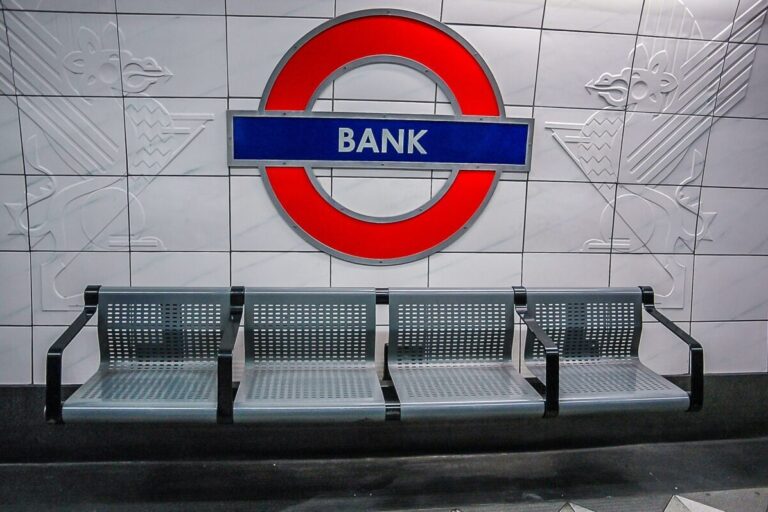Are you a non-resident searching for the best banking options in the UK? Setting up a bank account as a non-resident can seem daunting, but finding the right bank can make financial management much easier in the long term. Whether you’re planning to move, work, or study in the UK, having access to a compatible and resourceful bank is essential for managing your money safely and effectively.
This blog will walk you through some of the top banks in the UK offering services tailored to non-residents. You’ll also learn about what makes these banks stand out and how to choose the one that best fits your needs. Let’s get started!
Why Is Choosing the Right Bank Important for Non-Residents?
For non-residents, banking needs often go beyond standard transactions. You may need services like international transactions, foreign currency accounts, and easy online access while abroad. Choosing a bank that understands the unique challenges of non-residents ensures fewer roadblocks when managing your finances.
Additionally, certain UK banks are more accommodating to individuals without a permanent UK address or credit history, which can simplify the account-opening process.
What to Look for in a UK Bank as a Non-Resident
Here are some factors to consider when picking a bank in the UK as a non-resident:
- Ease of Account Opening: Does the bank allow you to open an account before arriving in the UK?
- Multi-Currency Options: Can you hold multiple currencies through your account?
- Fee Transparency: Does the bank clearly outline its fees for account maintenance and transactions?
- Online Banking: Is there a reliable and feature-rich mobile or online platform?
- International Money Transfers: Does the bank offer competitive rates and options for sending money abroad?
Keeping these in mind will help you make an informed decision while comparing options.
4 Best Banks for Non-Residents in the UK
1. HSBC Expat
HSBC is known worldwide, and their specific “HSBC Expat” accounts cater to non-residents. This account allows you to hold and manage funds in multiple currencies, making it ideal if you’re frequently juggling different money systems.
What makes HSBC Expat stand out:
- Multi-currency accounts (GBP, USD, EUR, etc.)
- Online and mobile banking features with global reach
- Support for international money transfers with competitive rates
While their services come with a higher minimum deposit requirement, HSBC Expat is perfect if you’re maintaining accounts across multiple countries.
2. Barclays International
Barclays International offers non-residents flexible services tailored to meet international banking needs. Their “International Bank Account” makes it easier to bank from overseas or start an account before relocating to the UK.
Barclays International account highlights:
- Wide ATM network for withdrawals nationwide
- Support for multiple currencies
- Easy money transfers abroad
Their accounts are accompanied by transparent fee structures, offering peace of mind for account holders.
3. Lloyds International
Lloyds International provides banking services tailored for customers transitioning between countries. Their accounts are particularly well-suited for foreign exchange and international transactions.
Key features:
- International money transfer support via partnerships
- Straightforward online banking
- Dedicated customer service team for expatriates
Lloyds International ensures that you can manage banking matters seamlessly, even after moving away from the UK.
4. Monese
Monese is a popular online-only bank that offers flexibility for non-residents. Opening an account is quick and doesn’t require a UK address or credit history, making it a solid choice for new arrivals.
What gives Monese an edge:
- No address or comprehensive documents required for onboarding
- Mobile-first platform for easy access
- Low fees and excellent foreign exchange rates
For expats looking for an efficient solution to banking without the headaches of traditional paperwork, Monese could be ideal.
Is a UK Bank Essential if You’re a Non-Resident?
Having a local UK bank account facilitates easier day-to-day transactions, eliminates expensive international banking fees, and helps streamline managing your finances. With some banks like Monese, the lack of a permanent address no longer serves as a hurdle. This is particularly important for those transferring funds often or needing quick access to cash. You can also read more about acceptable alternatives for transfers by reviewing this guide to sending money internationally like a pro.
FAQs
Can I Open a UK Bank Account Without a UK Address?
Yes! Banks like Monese and some international divisions, such as Barclays International, allow you to open accounts without a permanent UK address.
What Documents Do I Need to Open a UK Bank Account as a Non-Resident?
This depends on the bank, but usually, you will need the following:
- Proof of identity (passport or ID card)
- Proof of non-resident status or correspondence address
Check the requirements of the specific bank you’re considering before starting the application.
Do UK Banks Offer Multi-Currency Accounts?
Yes, most international banks such as HSBC Expat and Barclays International provide accounts that support multiple currencies.
Are There Fees for International Transfers?
Fees vary from bank to bank. Some banks, like HSBC, aim to reduce transfer fees, while others may provide detailed exchange rate information.
